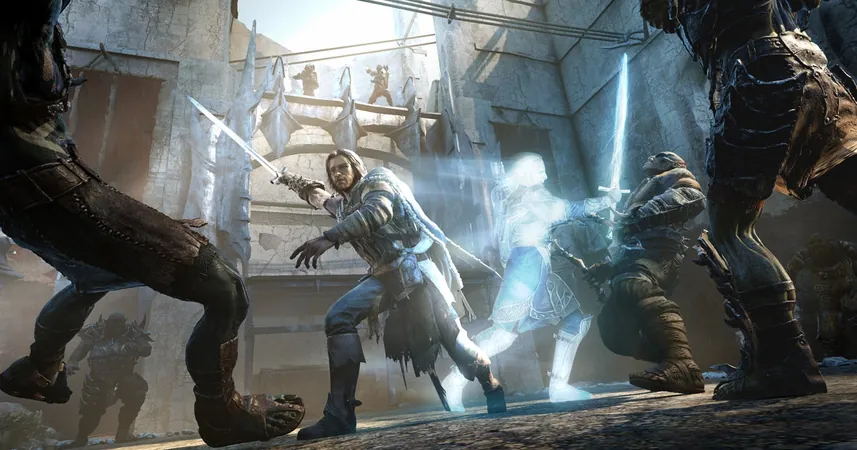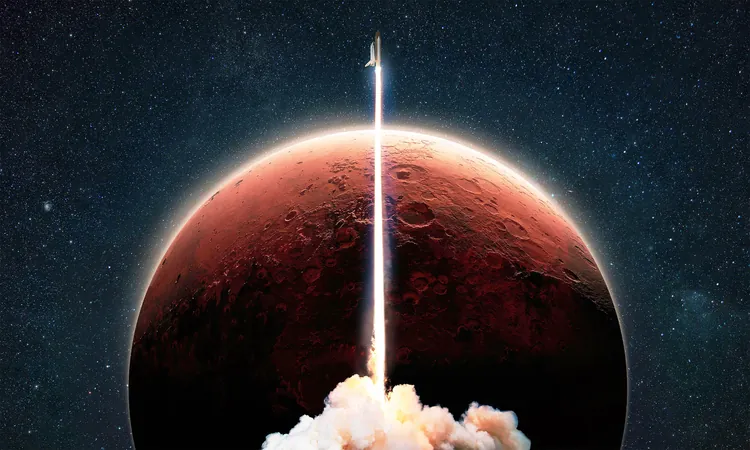
The Surprising Origin of Shadow of Mordor's Nemesis System: Designed to Combat Second-Hand Game Sales?
2025-03-25
Author: Jessica Wong
The Surprising Origin of Shadow of Mordor's Nemesis System: Designed to Combat Second-Hand Game Sales?
In a stunning revelation, Laura Fryer, a former vice president of Warner Bros Games, has shed light on the unconventional origins of Monolith's critically acclaimed Nemesis system, a feature that changed the landscape of single-player gaming.
For those unfamiliar, the Nemesis system is an ingenious mechanism that allows enemies to learn from their encounters with players, creating a unique gameplay experience where foes can evolve, remember past battles, and even seek revenge. This feature brought depth to the Middle-earth franchise, especially in Shadow of Mordor, where Orcs could rise through the ranks based on their interactions with players.
However, the creation of this sophisticated system wasn’t purely a product of creative vision; it was also a strategic move to tackle a corporate challenge: the surge in second-hand game sales. According to Fryer, a noticeable decline in profit from Rocksteady’s Arkham Asylum was linked to players reselling their copies after playthroughs. While this situation benefited retailers like GameStop, it left developers at a significant loss, as they only reaped profits from the initial sale.
Fryer explains, “For gamers, it was advantageous to buy a game, enjoy it, and then sell it back for a discount to purchase something new. But for developers, this was a disaster. They lost millions not seeing profits from all the used copies sold.” With this issue in mind, the Monolith team faced a dilemma while developing Shadow of Mordor: “How do we create a single-player game that is so captivating that players want to keep it forever?”
The answer lay in the Nemesis system. Fryer noted that while Monolith's game engine was not robust enough to support a fully open world akin to Grand Theft Auto, and the studio wanted to avoid the pitfalls of multiplayer gameplay, they needed a solution that would engage players long-term. This led to the implementation of the groundbreaking Nemesis system, which ultimately contributed to Shadow of Mordor’s commercial success.
Now here's the twist: While the Nemesis system has become one of the most celebrated innovations in gaming, it is currently locked away under a Warner Bros patent until 2036. The closure of Monolith earlier this year raises questions about the future implementation of such compelling game mechanics and whether they will ever be available for developers to use again.
The gaming community has been buzzing with the potential of this unique system, but for now, it remains a testimony to corporate strategy intertwined with creative ingenuity. Could this revelation change the way we view game mechanics in terms of game sales? Only time will tell!




 Brasil (PT)
Brasil (PT)
 Canada (EN)
Canada (EN)
 Chile (ES)
Chile (ES)
 Česko (CS)
Česko (CS)
 대한민국 (KO)
대한민국 (KO)
 España (ES)
España (ES)
 France (FR)
France (FR)
 Hong Kong (EN)
Hong Kong (EN)
 Italia (IT)
Italia (IT)
 日本 (JA)
日本 (JA)
 Magyarország (HU)
Magyarország (HU)
 Norge (NO)
Norge (NO)
 Polska (PL)
Polska (PL)
 Schweiz (DE)
Schweiz (DE)
 Singapore (EN)
Singapore (EN)
 Sverige (SV)
Sverige (SV)
 Suomi (FI)
Suomi (FI)
 Türkiye (TR)
Türkiye (TR)
 الإمارات العربية المتحدة (AR)
الإمارات العربية المتحدة (AR)